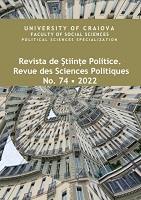Role of Mediation for Justice Reforms and an Increased Access to Justice
Role of Mediation for Justice Reforms and an Increased Access to Justice
Author(s): Constantin-Adi GavrilaSubject(s): Constitutional Law, Civil Law, Politics and law, EU-Legislation
Published by: Editura Universitaria Craiova
Keywords: Mediation; access to justice; effective mediation policies; alternative dispute resolution;
Summary/Abstract: The unrestricted access to both the courts of law and alternative dispute resolution (ADR), as judicial and extrajudicial means to resolve disputes are fundamental and equally important for facilitating better access to justice. This is related to the larger context defined by the European Union's policy to establish an area of freedom, security and justice. To this end, the European Parliament and the Council of European Union adopted on May 21st 2008 the Directive 2008/52/EC on certain aspects of mediation in civil and commercial matters. This Directive became a key instrument for the promotion, the availability and the competence of mediation services in the European Union Member States. As defined by its first article, the objective of the Directive is to "facilitate access to alternative dispute resolution and to promote the amicable settlement of disputes by encouraging the use of mediation and by ensuring a balanced relationship between mediation and judicial proceedings". Fourteen years since its adoption, the Directive has not yet solved the "EU Mediation Paradox". Despite its benefits and savings related to time, costs and stress, unfortunately, mediation in civil and commercial matters is not used in more than 1% of the cases in the EU, as determined by the Study "Rebooting the Mediation Directive: Assessing the Limited Impact of its Implementation and Proposing Measures to Increase the Number of Mediations in the EU", issued by the European Parliament in February 2014. This study shows that this disappointing performance results from weak policies promoting mediation in almost all 28 Member States. To serve the same goal of promoting mediation through legislative measures, the Romanian Parliament adopted in 2012 legislation based on the plaintiffs' mandatory attendance of an information session regarding mediation benefits before going to the court with a correlated sanction of case inadmissibility. The Romanian Constitutional Court found in 2014 that this model failed the constitutionality check, and mediation seized to exist practically in Romania ever since. The article analyses options for the next steps.
Journal: Revista de Științe Politice. Revue des Sciences Politiques
- Issue Year: 2022
- Issue No: 74
- Page Range: 19-29
- Page Count: 11
- Language: English

